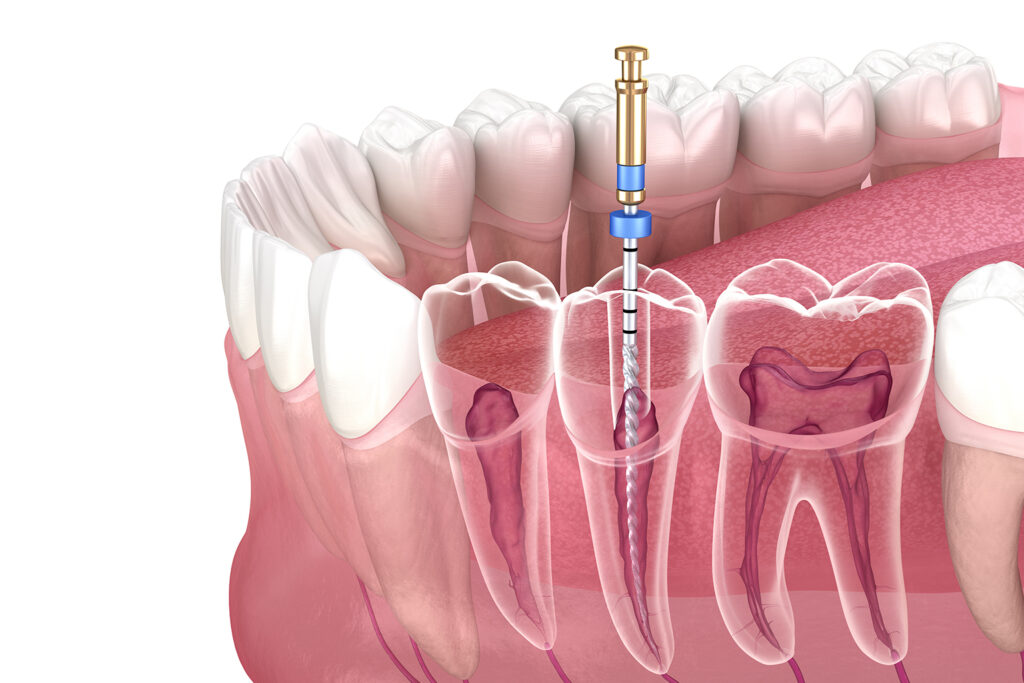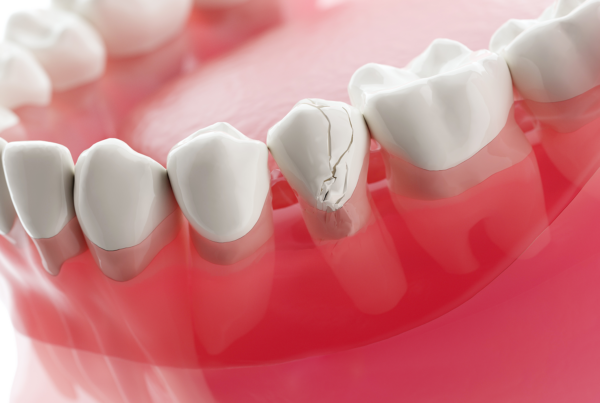If you’re experiencing tooth pain or have been told by your dentist that you need a root canal, it’s natural to feel a little apprehensive. Root canals have a reputation for being painful and uncomfortable, but the reality is that modern root canal therapy is a relatively straightforward procedure that can alleviate pain and save your tooth. In this blog post, we’ll walk you through what to expect before, during, and after your root canal, so you can feel informed and confident about the process. Whether you’re facing a root canal for the first time or are simply curious about what to expect, this guide will provide you with the information you need to feel comfortable and prepared.

What Causes You To Need a Root Canal?
If you’re facing a root canal, it’s likely because the inside of your tooth, known as the pulp, has become infected or inflamed. This can happen for a number of reasons, including:
- Deep decay
- Repeated dental procedures on a tooth
- A crack or chip in the tooth
- A traumatic injury to the tooth
When the pulp becomes damaged, it can cause significant pain and lead to an infection, which can spread to other parts of the mouth and body if left untreated.
In order to save the tooth and prevent the spread of infection, your dentist may recommend a root canal. During the procedure, the damaged pulp is removed and the inside of the tooth is cleaned, disinfected, and sealed. This not only relieves pain, but also helps to protect the tooth from further damage.
It’s important to understand that a root canal is not a painful procedure in itself, and most patients report very little discomfort during the procedure. In fact, many people report feeling relief from tooth pain almost immediately after the procedure is complete. So if you’re facing a root canal, know that the procedure is designed to alleviate pain and save your tooth, and that you’re in good hands with your dental professional.
What Happens During A Root Canal?
So, what exactly happens during a root canal procedure? Here’s a step-by-step rundown of what you can expect:
- Anesthesia: Before the procedure begins, your dentist will numb the area around the affected tooth with a local anesthetic. This will ensure that you feel no pain during the procedure.
- Accessing the pulp: Next, your dentist will create a small opening in the top of the tooth to access the damaged pulp.
- Removing the pulp: Using special instruments, your dentist will remove the damaged pulp and clean the inside of the tooth. This may involve shaping the canals and removing any debris.
- Disinfecting and sealing the tooth: Once the inside of the tooth is clean, your dentist will use an antiseptic solution to disinfect the area. They will then fill the canals with a rubber-like material and seal the opening in the tooth.
- Placing a temporary filling: To protect the tooth until your next appointment, your dentist will place a temporary filling in the opening.
- Follow-up appointment: At your follow-up appointment, your dentist will remove the temporary filling and place a permanent crown or filling to protect and restore the tooth.
The entire root canal procedure typically takes one to two hours, depending on the complexity of the case. Most patients report very little discomfort during the procedure, and the relief from tooth pain is almost immediate.
Do I Need A Crown After a Root Canal?
After a root canal, your dentist may recommend a crown to protect and restore the affected tooth. But why is a crown necessary, and what are the benefits?
A crown is a custom-made cap that fits over the remaining part of the tooth, offering protection and restoring its shape and function. Crowns are often recommended after a root canal because the procedure removes the internal structure of the tooth, leaving it more vulnerable to damage. A crown helps to protect the tooth from further damage, and also restores its natural appearance and function.
There are a few different types of crowns available, including ceramic, porcelain-fused-to-metal, and gold. Your dentist will help you choose the best option for your needs, based on factors such as the location of the tooth, your bite, and your personal preferences.
It’s important to note that a crown is not always necessary after a root canal. In some cases, a filling or other restoration may be sufficient to protect the tooth. Your dentist will determine the best course of action based on the specific needs of your case.
Caring for Your Teeth After a Root Canal: Tips for a Speedy Recovery
A root canal is a common and effective procedure for saving a damaged or infected tooth, but it’s important to follow a few simple steps to ensure a speedy and successful recovery. Here are some tips to help you care for your teeth after a root canal.
- Take it easy: After your procedure, it’s best to avoid strenuous activities for a few days. This will give your tooth time to heal and reduce the risk of further damage.
- Pain management: You may experience some mild discomfort after your procedure, but over-the-counter pain medication should be sufficient to manage any pain. If you experience severe pain or swelling, contact your dentist immediately.
- Avoid biting and chewing on the affected tooth: To protect your tooth and allow it to heal properly, it’s important to avoid biting and chewing on the affected tooth for a few days after the procedure. Stick to soft foods and avoid chewing gum or eating hard, crunchy foods.
- Keep the area clean: Brush and floss your teeth as normal, but be gentle around the affected tooth. You may also want to rinse your mouth with salt water to help reduce swelling and promote healing.
- Follow-up appointments: Your dentist will schedule a follow-up appointment to check on the progress of your recovery and place a permanent crown or filling. It’s important to attend all scheduled appointments to ensure the long-term success of your root canal.
In conclusion, a root canal is a common and effective procedure for saving a damaged or infected tooth. By following a few simple steps, you can ensure a speedy and successful recovery and protect the health of your teeth. If you’re facing a root canal, or if you have any questions about the procedure, we encourage you to schedule an appointment with our clinic. Our team of dental professionals is here to help, and we’re dedicated to providing you with the highest quality dental care.








